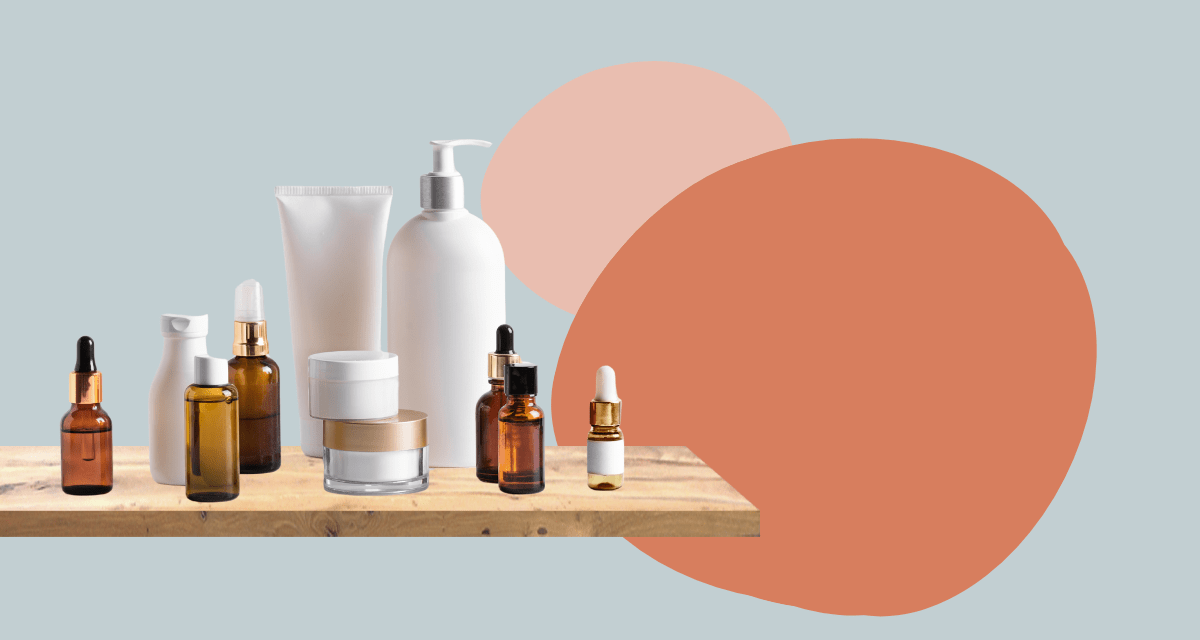
Cosmeceutical Grade Skincare vs Supermarket Skincare: An Honest Look
Australian consumers spend over 1 billion annually on personal care, beauty, and anti-ageing treatments. When it comes to skincare, navigating

Vitamin C serums are legendary for a reason: They really work and target just about any skin concern, including uneven skin tone, pigmentation, vascular concerns, sun damage and acne – to name a few.
But how exactly does it work in the skin? Let us take you on a deep dive into the wonders of Vitamin C and learn what makes Vitamin C such a sought after ingredient and how to get the most out of the benefits.
Here’s how vitamin C works and how to get the most out of the ingredient.
Vitamin C is a potent antioxidant that fights off free radical damage within our skin cells.
Antioxidants play an essential role within our skin as they help reduce damage to our cells from daily aggressors such as UV damage and pollution.
Amazingly, vitamin C’s benefits aren’t limited to its antioxidant status. Due to its acidic nature, when used topically, the skin is triggered into healing itself, thereby stimulating collagen and elastin production. As we all know, we want more collagen as elastin as this is what keeps our skin plump and firm.
Other benefits of Vitamin C include
More Hydrated Skin: Vitamin C plays a vital role in retaining precious moisture. Specifically, Vitamin C helps reduce trans-epidermal water loss (TEWL). Which means it helps reduce the rate water evaporates through the skin.
A brighter, more even complexion: Vitamin C contains a property that inhibits your skin’s melanin production, which causes skin discolouration, like dark spots and hyperpigmentation. Ongoing use can prevent new spots from forming and also works to fade existing spots.
Protects against sun damage: Skipping your daily application of SPF50+ is never an option; however, the powerful antioxidant action of vitamin C protects the skin from the sun’s rays and reduces the effects caused by the sun. It also can enhance our natural SPF.
Reduces Redness: Vitamin C has been shown to act as an anti-inflammatory. Because it is an antioxidant, it neutralises free radicals that cause oxidative damage and discourage inflammatory immune responses. This means that it soothes and reduces puffiness and redness.
Increases collagen production: Vitamin C is one of the essential factors for the production and stabilisation of collagen, especially Collagen Type I and III. As we age, our collagen production slows, and we naturally begin to lose our natural plumpness. Add to this environmental and poor lifestyle factors, and our collagen breaks down even faster. Lucky we have Vitamin C on our side.
How to get more out of your Vitamin C Serum
Vitamin C is typically used in the mornings as this is when it is most effective against fighting off free radical damage. It also amplifies the UV protection provided by your SPF.
Because of its chemical structure, Vitamin C oxidises on your skin when exposed to the air around you. This process is what provides antioxidant and pollution protection as it neutralises the free radicals that want to harm our skin.
How to choose the right Vitamin C for your skin
Like any ingredient or product, it’s all about choosing the right one for your skin. But how do we know which one is the right one?
Choosing the right Vitamin C starts with determining your skin type and concerns. We suggest speaking to a professional skin therapist to get an accurate diagnosis.
It is not as simple as just purchasing any product with Vitamin C. There are many different types, and each has its unique purpose.
Here is a breakdown of the different types of Vitamin C most commonly found in our skincare to give you an idea of what options are available.
L-ascorbic Acid (Pure Vitamin C)
This is the most potent form of Vitamin C and works hard to neutralise free radical damage and reduce skin damage. It quickly absorbs into the skin, making it a highly recommended ingredient to tackle anti-ageing, uneven skin tone, skin texture and acne. However, although it is an ideal ingredient, it can cause reactions in the skin if not formulated correctly or if the concentration is too high. Having too high a pH makes this form of Vitamin C ineffective and is the leading cause of skin irritations and reactions.
We love our Pure C Crystals from Cosmedix as it can be blended in with your moisturiser or serums.
Ascorbyl Palmitate
Ascorbyl Palmitate is a lipid-soluble form of Vitamin C. Its primary benefit is brightening; however, it also helps stimulate collagen and fight free radical damage and damage from oxidative stress. It’s one of the few forms that can be delivered in a creamy consistency.
Magnesium Ascorbyl Phosphate.
Magnesium Ascorbyl Phosphate is a derivative of Vitamin C, which metabolises to Vitamin C after it penetrates the skin. Not only does it help scavenge free radicals, but It brightens the skin and supports collagen synthesis.
We love Triple C Serum from Societe as it has a unique blend of three Vitamin Cs.
Tetrahexyldecyl ascorbate
This is one of the most stable forms of Vitamin C and has emerged as one of the stronger antioxidants. It is ideal for sensitive and damaged skin as it can penetrate deeply without causing further irritation.
Brilliancy from Cosmedix has quickly become a cult favourite with us. The lightweight formulation helps improve hydration, brightening and illuminating the skin.
We’ve loved our Vitamin C serums and consider them as heroes within our home care plans for these reasons and more.

Australian consumers spend over 1 billion annually on personal care, beauty, and anti-ageing treatments. When it comes to skincare, navigating

When you think about the skin you’re in, what measures do you take to protect it? At Nuovo Skin and

In an ever-changing world, one thing remains consistent: the importance of a dedicated self-care routine that emphasises both mental and
